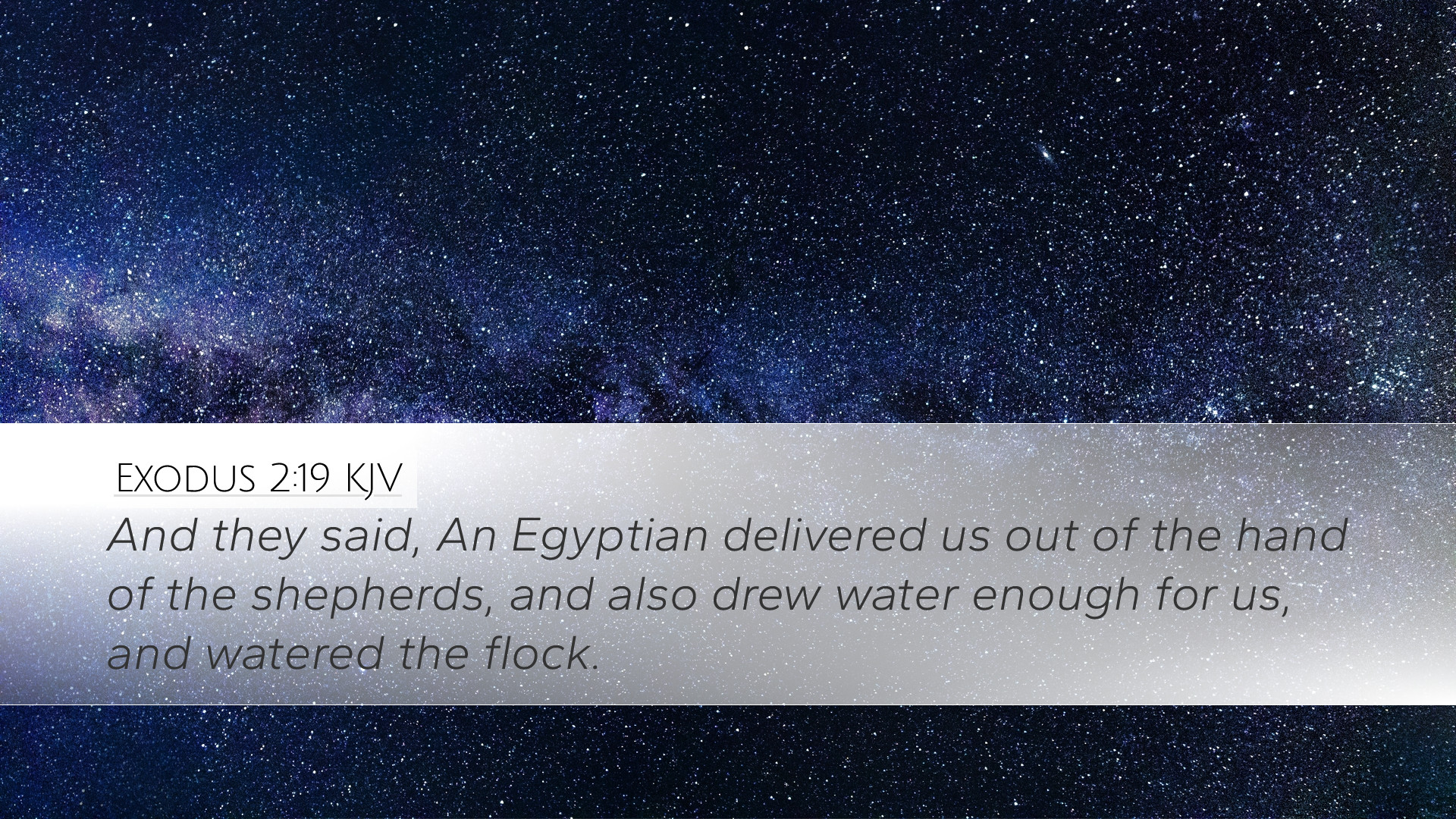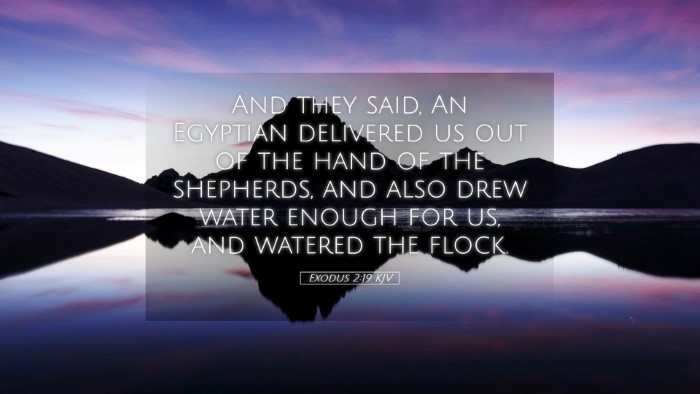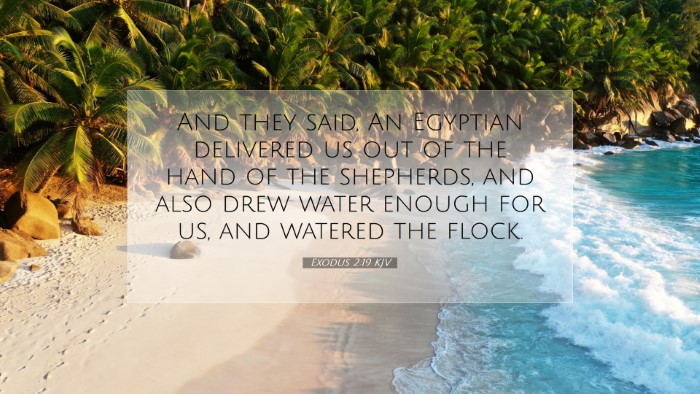Commentary on Exodus 2:19
Verse Reference: Exodus 2:19 - "And they said, An Egyptian delivered us out of the hand of the shepherds, and also drew water enough for us, and watered the flock."
Introduction
This verse captures a pivotal moment in the life of Moses and illustrates the profound impact of divine providence in the unfolding narrative of deliverance for the Israelites. Here we see the daughters of Reuel (Jethro) recounting Moses' act of bravery and kindness, which lays the groundwork for his future role as the deliverer of Israel.
Contextual Overview
The broader context surrounding Exodus 2:19 is crucial for understanding its significance. Moses had fled Egypt after killing an Egyptian who was beating a Hebrew. This act of fervor led him to Midian, where he encountered Reuel’s daughters, who were subjected to oppression by local shepherds. The narrative subsequently reveals how Moses' intervention not only restores order but also introduces him to a family that would play a vital role in his life and ministry.
Insights from Public Domain Commentaries
Matthew Henry's Commentary
Matthew Henry emphasizes the providential hand of God in Moses' life. He notes that the Egyptian's identity is pivotal; he was recognized as one who intervened to help those in need, which aligns with God's character as a deliverer. The description of Moses as "an Egyptian" illustrates the duality of his identity — raised in Pharaoh's household yet destined to lead God’s people out of bondage.
Henry also points out the stark contrast between Moses and the oppressive shepherds. While the shepherds represent cruelty, Moses embodies compassion and justice. This act of delivering the daughters from the shepherds marks the beginning of Moses' transformation from a fugitive to a liberator, foreshadowing his future role as a leader.
Albert Barnes' Notes on the Bible
Albert Barnes provides a detailed examination of the social dynamics at play in the verse. He highlights the cultural significance of water-drawing in ancient Near Eastern societies, indicating that it was both a physical and social necessity. By coming to the aid of the women, Moses not only fulfills a physical need but also equals social status through noble action.
Barnes further examines the term “deliver” used by the daughters in describing Moses. This term signifies a saving act, interpreting Moses’ actions as a prelude to his ultimate vocation to save the children of Israel from Egyptian bondage. Barnes reflects on how this moment illustrates the providence of God, guiding Moses into a role that he is yet unaware of.
Adam Clarke's Commentary
Adam Clarke takes a lexical approach, expounding on the word "Egyptian," noting that it reflects not only the origin of Moses but also the perceptions that the Hebrew community had of him at that time. Clarke affirms that Moses’ appearance as an Egyptian sheltered him in his early years and facilitated the interaction with Jethro’s daughters. He underscores the significance of this divine appointment, as it not only represents Moses’ character but also foreshadows his leadership among the Israelites.
Moreover, Clarke speaks to the act of watering the flock, an image laden with pastoral significance. By tending to the flock, Moses exemplifies the qualities of a good shepherd, traits that would later capture his identity as a mediator between God and His people. Clarke also notes the theological implications of divine providence—how God orchestrates events to fulfill His divine will.
Theological Implications
- Divine Providence: This verse serves as a reminder of God's unseen hand at work, preparing individuals for their roles in His salvation plan.
- Moses' Identity: The dual identification as an Egyptian reflects the complex identity of Moses who straddles two worlds: the oppressor and the oppressed, aligning him with the narrative of redemption.
- Social Justice: The actions of Moses provide a model for acts of justice and kindness, reflecting God’s compassion in situations of need and oppression.
- Foreshadowing Deliverance: The deliverance of Jethro’s daughters is a microcosm of the greater deliverance of Israel, hinting at Moses’ future mission and role as a shepherd of God’s people.
Conclusion
Exodus 2:19 encapsulates themes of deliverance, providence, and identity—all of which are central to the narrative of Moses and the broader Israelite experience. The footnote of this verse reminds us that even in formative moments of our lives, God is at work preparing us for His detailed tapestry of redemption. For pastors, students, and theologians, the rich insights from the early commentaries on this text encourage reflection on the nature of divine providence, the call to justice, and the importance of identity within God's plan.


